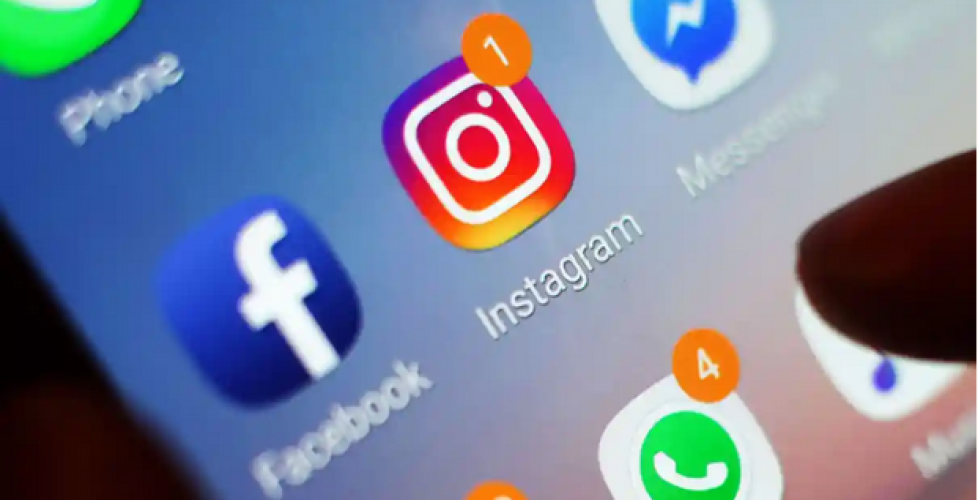Social Media Has Given All of Us Clinical Anxiety
If you are checking any social media accounts right now, you’re probably pretty worried. The situation in Seattle resembles a story line out of the Batman comics, race riots in major cities and of course, that pesky little virus that shut down our planet for most of this year.
As social media has increasingly become a source of information about the COVID-19 pandemic, a new study from Digital Third Coast is giving insight into how much news Americans are consuming during the virus and how it’s affecting mental health. The analysis of the psychological effects of news and social media burnout during the COVID-19 pandemic parallels new mental health statistics released by the government. Just last week, an emergency survey from the Census Bureau showed that approximately one third of Americans (123 million people) are currently showing signs of clinical anxiety or depression. I mean, of course we are. But why?
- Increased news consumption — 66 percent of survey respondents said they are consuming more news than usual, and 40 percent said their social media use has increased since the start of the pandemic.
- The “news” today is designed to really keep your attention so advertisers can sell you things — Journalism as we knew it…is dead and has been replaced by a 24/7 A.I.-driven fear machine that learns what you “like” and feeds you much more of it. Great.
- The nature of 24-hr news means the need to fill up that time/space with something, so media outlets have to get “creative” with their stories, resulting in even more coverage and an overall sinking feeling that things are getting worse out there.
As mental illness rates rise, 68 percent of Americans say social media/news caused anxiety during this pandemic. Facebook was the most popular platform by which respondents received virus news followed by Twitter.
The analysis showed that most respondents became aware of COVID-19 in January, but only 19 percent showed concern about the virus at the time. By the end of March, the month when many stay-at-home and shelter-in-place orders were enacted, 48 percent said they were concerned about the novel coronavirus.
And maybe the info being shared isn’t altogether accurate all around the world. U.N. Secretary-General António Guterres last week called a “pandemic of misinformation,” a phenomenon that has not gone unnoticed as nearly two-thirds of Americans said they have seen news and information about the disease that seemed completely made up, according to a recent Pew Research Center study.
What distinguishes the proliferation of bad information surrounding the current crisis, though, is social media. Vish Kee, Professor of Health Communication at the Harvard T.H. Chan School of Public Health, said the popularity and ubiquity of the various platforms means the public is no longer merely passively consuming inaccuracies and falsehoods. It’s disseminating and even creating them, which is a “very different” dynamic than what took place during prior pandemics MERS and H1N1. The sheer volume of COVID-19 misinformation and disinformation online is “crowding out” the accurate public health guidance, “making our work a bit more difficult,” he said. And it’s also why you see people wearing gloves to pump their gas. (that widely shared post turned out to be a social media hoax started by a tech company in Israel).
Comedian Sasha Baron Cohen (Borat, Talladega Nights, Les Miserables) recently released a video condemning the big social media companies saying, “Your product…is defective and YOU must be held accountable for the damage done.” And if you can’t trust Borat, who CAN you trust?
What’s the solution? Well, being VERY careful around social media is a GREAT start. Learning how the media and social media play us is another—and that comes from very careful reading of stories (not just clickbait headlines) and taking the information in BEFORE reacting and commenting and sharing. We also must be cautious about what we’re liking and commenting on because social media algorithms are always at work, always learning about us so they can do their job. (Yeah, it’s EXACTLY that creepy).
Herman Melville once said Ignorance is the parent of fear. There is a LOT of BOTH going around these days. But knowing HOW social media really works and what the software is trying to do is more than half of the battle.
You know, I wasn’t afraid of the coronavirus at any time, mainly because I checked the virus data every single day and realized it wasn’t much (here in California). I tried to help others do the same using my social feeds, but it will take ALL of us working in disbelief together to ensure this fear never grips us again!

